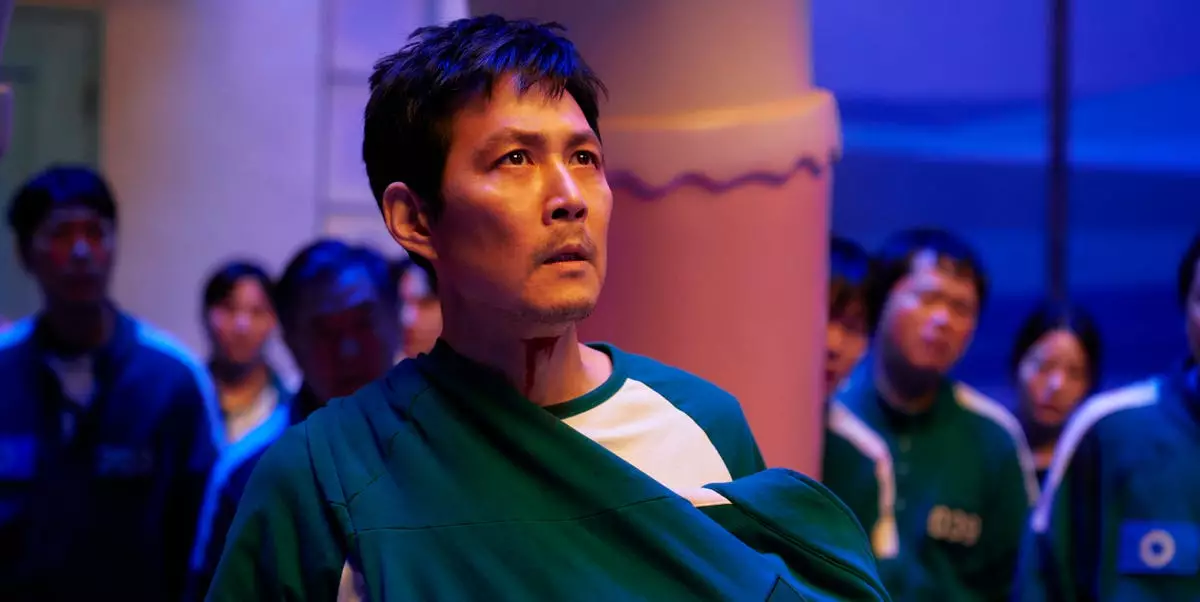The finale of “Squid Game” marks a pivotal turning point in storytelling that challenges viewers’ expectations of closure and happiness. Hwang Dong-hyuk, the visionary behind the series, initially envisioned a more upbeat conclusion—one where Gi-hun escapes the brutal games, reunites with his daughter, and finds normalcy in a future free from the horrors he endured. Such a resolution seemed natural, fulfilling viewers’ longing for catharsis amid the relentless violence. However, as the creative process unfolded, the director’s perspective shifted profoundly, revealing a more nuanced understanding of what authentic storytelling demands.
The decision to craft an ending rooted in sacrifice rather than escapism adds a layer of moral gravitas that resonates far more deeply than a conventional happy ending. It underscores that true hope often emerges from selflessness and pain, a theme that is especially poignant when reflecting on our contemporary societal crises. The narrative morphs from a story about individual survival into a powerful allegory for collective responsibility—highlighting that sometimes, giving up oneself is the only way to secure a better future for the next generation.
Broader Social Contexts and Artistic Responsibility
Hwang’s reflection on the state of the world during the series’ final iteration reveals a thoughtful and deliberate attempt to mirror our societal anxieties. The decision to deepen Gi-hun’s sacrifice is more than a plot device—it’s a commentary on the destructive nature of greed, inequality, and a collective loss of hope. In an era where economic disparities grow wider, ecological crises loom large, and geopolitical tensions escalate, the move from a potentially hopeful ending to one emphasizing sacrifice can be seen as a deliberate artistic choice rooted in responsibility.
By illustrating Gi-hun’s self-sacrifice, the creator positions the protagonist as a symbol for moral integrity amid chaos. It suggests that meaningful change is often born out of uncomfortable truths and personal losses, challenging viewers to reconsider their roles within the social fabric. This is a bold divergence from the typical narrative of triumph and personal victory, and it reinforces the idea that true heroism lies in the willingness to place others’ needs above oneself—even when it involves pain and sacrifice.
What the Final Act Says About Humanity
The ultimate act of Gi-hun in “Squid Game” elevates the series from mere entertainment into a compelling moral discourse. His choice to let himself be sacrificed so that the innocent child can escape with a chance at life is a profound statement about hope and future generations. In a world teetering on the brink of environmental collapse, economic inequality, and social fragmentation, this gesture embodies a call to collective responsibility.
Hwang’s acknowledgment that the final scene, where Gi-hun’s belongings are handed over to his daughter by the Front Man, encapsulates a legacy of sacrifice rather than victory. It’s an ode to the idea that sometimes, the path to a better future involves relinquishing personal gain for the sake of others. Such a message pierces through the layers of brutality and despair, offering a glimmer of hope rooted in empathy and moral strength.
Implications for Audiences and Society
The series’ ending, though less traditionally satisfying, pushes audiences to confront uncomfortable truths about our world. It challenges us to think about what kind of society we want to forge and the sacrifices that might be necessary to achieve it. More than just a narrative choice, it serves as a moral mirror reflecting the urgent need for societal change—encouraging viewers to question their own values and actions.
In the face of global crises, the story reminds us that hope does not always come in the form of personal gain or triumph. Sometimes, hope manifests through acts of courage and sacrifice that pave the way for collective progress. “Squid Game” thus becomes more than entertainment; it transforms into a moral lesson about the importance of selflessness in building a sustainable future for those who come after us.

